Conscious Co-Parenting After Divorce or Separation
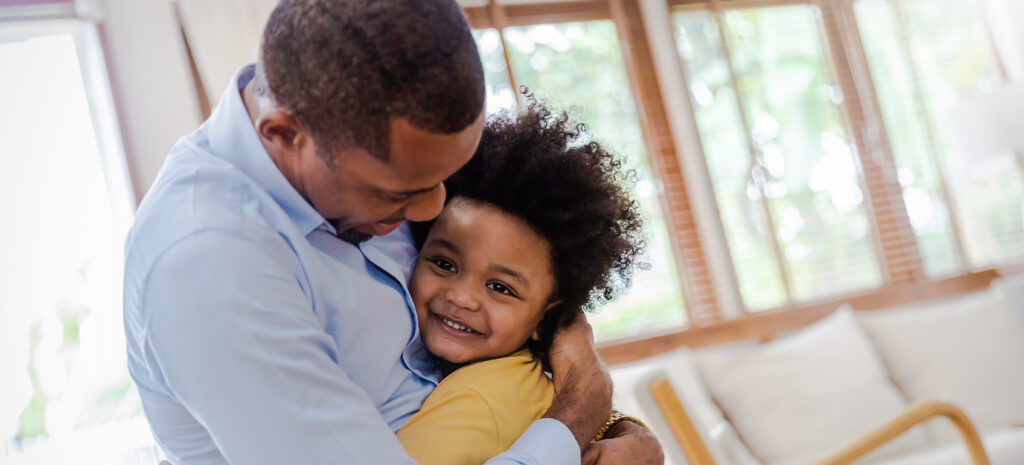
Introduction Divorce or separation is normally one of the hardest transitions in life that causes emotional turmoil and shifts among all members of the family. It is understandable that parents would be concerned about the effect on the children. However, with a deliberate co-parenting, you can develop stability, empathy and resilience- and the well-being of your child has to be the priority. The road can be varying in every family, however in Vedangi Brahmbhatt, we provide parents throughout the USA with time tested, understanding approaches in the peaceful post-divorce parenting. 1. Prioritize Nonviolent Communication and Active Listening The relationship that a co-parenting relationship can be built on is that of nonviolent communication. Despite the separation, it is still possible to communicate with your co-parent in a sensible way before placing the respect and needs of your child first. Active listening parenting leads to improved tension-free communication between both adults and children as well as understanding of each other. Family meetings (meetings even when parents live in different houses) are among the supports, which permit the open communication possibilities and enable children to share their emotions regarding transitions. The exchange of information regarding school, everyday life and even the activities of toddlers makes sure that the children feel secure and assisted regardless of their location. 2. Support Emotional Regulation for Kids and Adults In case of divorce, children usually have problems with depressive and happy moods. As the conscious parent it is good to make kids learn the necessary emotional regulation kids require not only with words, but also with serenity in energy and stable routine. Security and confidence are developed through mindful transitions between homes, justification of how children feel and predictability in the discipline such as positive discipline (instead of punishment) with toddlers. Self-care and emotional regulation are also important when it comes to adults. Use the work of professional resources and best parenting books as a tool and validation. In some cases, consulting a child development expert would be helpful in offering specific assistance to special family situations. 3. Foster Holistic Child Development with Consistency and Collaboration The healthy post-divorce families are dedicated to the process of full child development, not merely emotional, but cognitive, social, and physical. Regular anticipations on either side (such as how to use screen time, eat, and sleep) reduces the ambiguity in children. In states like Conscious Co-Parenting NJ, the success of co-parents has been achieved through the reduction of differences in routines, rules, and even holiday routines. Exchanging materials about the methods of co-parenting that can be adopted at home and frequent visits between parents can facilitate the difficulties and establish mutual trust. Conclusion: Divorce is a chapter, and not the story. Through caring, dialogue, and mindfulness, one can establish a base of happiness, recovery, and development by the co-parenting process. When children grow up with love, predictability and the consistent availability of parents who are concerned with them, they thrive. Vedangi Brahmbhatt has specialized consultations which enable families to flourish post transition. Also, keep in mind to follow us on Instagram, and YouTube in order to get continuing tips and resilience stories. Hint: Tally a co-parenting journal- exchange notable ideas, times and experiences between homes to make the life of your child as smooth as possible. To see our most recent press releases, please visit the following address:To learn more and start your healing co-parenting journey, visit vedangibrahmbhatt.com and explore our resources, courses, and consultation services.
Raising a Highly Sensitive Child: What You Need to Know
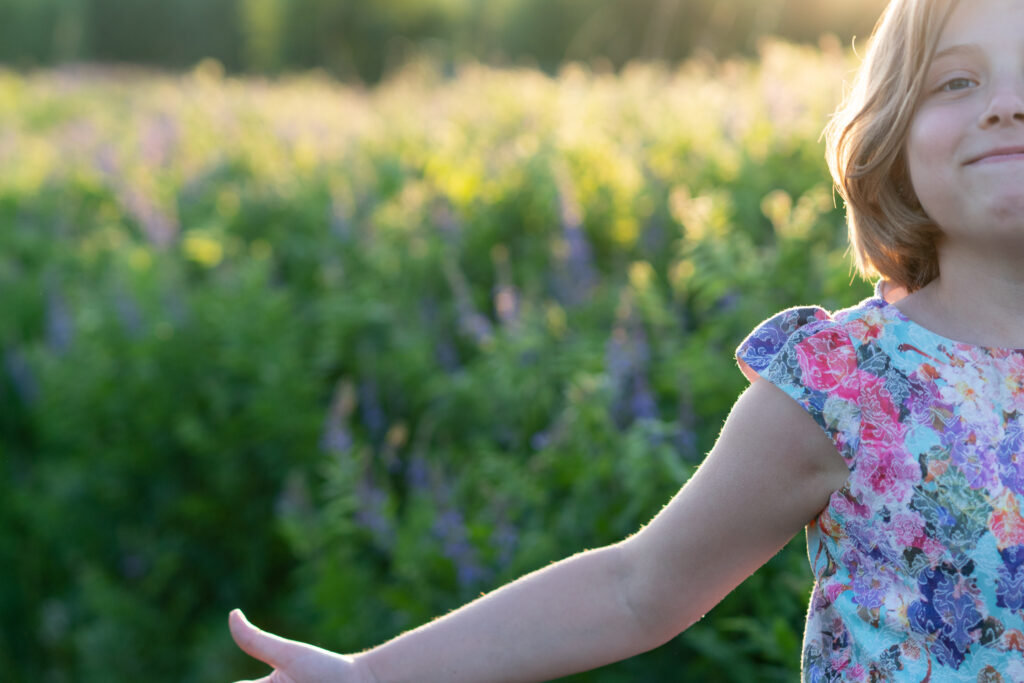
Introduction Rearing a highly sensitive child is a special and fulfilling experience that is accompanied with its pleasures and struggles. Such children have a strong sense of empathy, high level of intuition and heightened sensitivity and therefore they are more sensitive to the environment they are in, but are also prone to overwhelm. Since you are the conscious parent, it is important to be aware of the sensibilities of your child and apply nurturing principles to grow and acquire strength in the fast-paced world. Under the direction of Vedangi Brahmbhatt, an expert child development expert, this blog provides insights to the USA family in need of knowing, supporting, and empowering their highly sensitive child through practical and empathetic tools. 1. Recognize Sensitivity as a Strength, Not a Weakness Highly sensitive children are usually not understood, especially in a place where emotional expression is not appreciated. Such children can be very sensitive to sensory activities (such as loudness or rough clothes), the alteration of routines, or even slight change in the dynamics of the family. Mindful parenting proposes that we embrace these qualities instead of suppressing them. Thanks to proper toddler activities, taking into consideration sensory preferences and emotional comfort (gentle play, quiet time, art, walks in nature), parents can make sensitive kids prosper. 2. Use Nonviolent Communication and Positive Discipline Sensitive children require discipline–not by inflicting severe punishments on them or yelling at them. Nonviolent communication is a technique that is centered on empathy, validation, and direction of behavior using soft boundaries. The positive discipline practices with the toddlers, including the ability to provide clear options and kind of reminders, can develop confidence instead of fear. Family meetings when all family members are free to show their emotions are a great practice of active listening parenting and conflict resolution. Hearing and understanding the sensitive children will help them gain strong emotion regulation ability. 3. Foster Holistic Child Development and Conscious Co-Parenting Rearing a highly sensitive child requires taking care of his/her mind, body and spirit. This demands a comprehensive approach to child development, including creative, physical and reflective activities, making environments feel secure, and allowing the child to have time off. There must be conscious co-parenting particularly in families where the people may react differently to sensitivity. Establishing regular habits, exchanging materials such as the most effective parenting books, and discussing the strategies on how to apply the techniques of conscious parenting at home openly will get both parents on the same page. Conclusion: It can be most rewarding to bring up a very sensitive child. These children flourish in a safe haven which is formed by compassion, mindfulness and routine. Individualized understanding and assistance may guide the parents to customize solutions to special challenges, which leads to the sense of security and strength in later life. To get professional assistance and materials, look at the consultations and courses created by Vedangi Brahmbhatt and aimed at conscious families. You should not forget to follow us on Instagram, and YouTube to receive updates, professional advice, and parenting inspirations. Hint: Do sensory check-ins- ask your child what it feels like to their bodies in experiences or whereabouts. Such frequent feedback assists in developing trust and understanding. To see the current news and updates, visit our recent press releases. Visit vedangibrahmbhatt.com for more resources, courses, and expert consultations—helping sensitive children flourish in every family.
Gentle Parenting vs. Conscious Parenting: What’s the Difference?
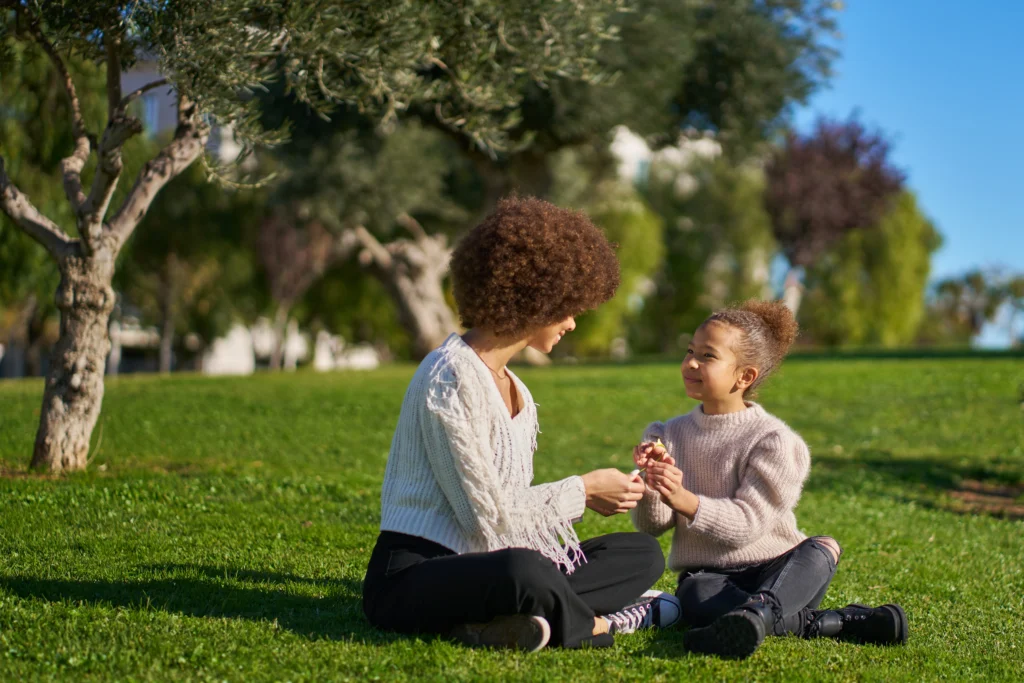
Introduction The paradigm of parenting has evolved greatly with families in search of models that are not just behavior oriented but those that are deeply concerned with the inner worlds of children that are involved with the emotional growth of such children. Gentle parenting and conscious parenting is one of the most discussed nowadays. It is necessary that parents in the USA are aware of the distinction between these philosophies to be able to make a decision that matches their values and needs of their child. I assist families in acquiring the knowledge and the resources necessary to support interconnected parenting in the present modern era at Vedangi Brahmbhatt with my backgrounds as a specialist in child development. Traced in this blog, I unfold each of these styles, how either has some special advantages, plus how either can come to the rescue of your family, in the daily toddler play, as well as in the difficult emotional situations. 1. The Foundation: What Sets Gentle and Conscious Parenting Apart? Kindness, respect, and empathy are the key elements of any interaction between a parent and his or her child, which is the foundation of gentle parenting. It is concerned with non-punitive discipline, empathy and encountering the children at the level they are feeling. When parents use the style, they are likely to revert to positive discipline with toddlers that are not based on shame/fear but on teaching rather than correcting. The conscious parent on the other hand is a self-conscious being, and an intended being. Conscious parenting can be defined as the act of sensitizing to triggers or emotional pattern and experience in order to respond rather than react to a child. It often incorporates practices like attentive parenting, daily self-reflection, and living in the moment to help the families to interrupt negative patterns and heal together. 2. Communication and Emotional Growth The two methods consider the significance of a non-violent communication and verify it in daily non-disrespectful conversations. Conscious parenting however, takes a step further to ask the parents to look into the nature of their emotional response. Active listening parenting is a strategy that helps a conscious parent not only to validate his or her child but also to be attentive to his or her own feelings and past damages that can be aroused. The two methods promote family gatherings to generate collaboration, trust and problem solving competence. These meetings are also being connected to the families where each individual is always welcomed to be open and engage in the working process of creating the family agreements and conflict resolution. 3. Holistic Child Development and the Role of Co-Parenting Gentle parenting and conscious parenting are differentiated such that both are committed to the holistic growth of the child such as emotional, cognitive and social growth. However, conscious parenting is particularly brilliant when it comes to the long-term outcomes, both in terms of generation. Through openness and mutual healing, the whole family system turns into a strong and healthy one. Conscious co-parenting enables the families to become united in values, emotional intelligence and teamwork in all parenting activities as well as regularities. These strategies can be easily incorporated into the routine, day-to-day life of toddler, as well as challenging transitions. The result? Children who grow with emotional self-control, confidence and inner security. Conclusion: Choosing the Right Path for Your Family It is true that the principles of gentle parenting and conscious parenting are similar, however, self-awareness and healing are the crucial distinction. Gentle parenting focuses on the child’s present experience, while conscious parenting encourages parents to reflect and grow continually. Together, they create a family culture of lifelong learning and empathy. My products and services are personal consultative work and materials offered to families seeking to further develop their parenting practice with the help of a professional. Get inspired, learn parenting tips, and stay updated on the latest mindful family living news. Follow me on Instagram, and YouTube. A little tip of mine here: you must begin small, it means for you to think of a single thoughtful moment a day and be attentive to your responses and how your parent child relationship starts to change. In order to see our recent press releases, visit the following page. We believe that empowered parenting at Vedangi Brahmbhatt is based on informed choices. You can access mindful and conscious education, books, and personalized guidance on your conscious journey by visiting vedangibrahmbhatt.com. Gentle Parenting vs. Conscious Parenting: What Is the Difference?
The Connection Between Mindfulness and Peaceful Parenting
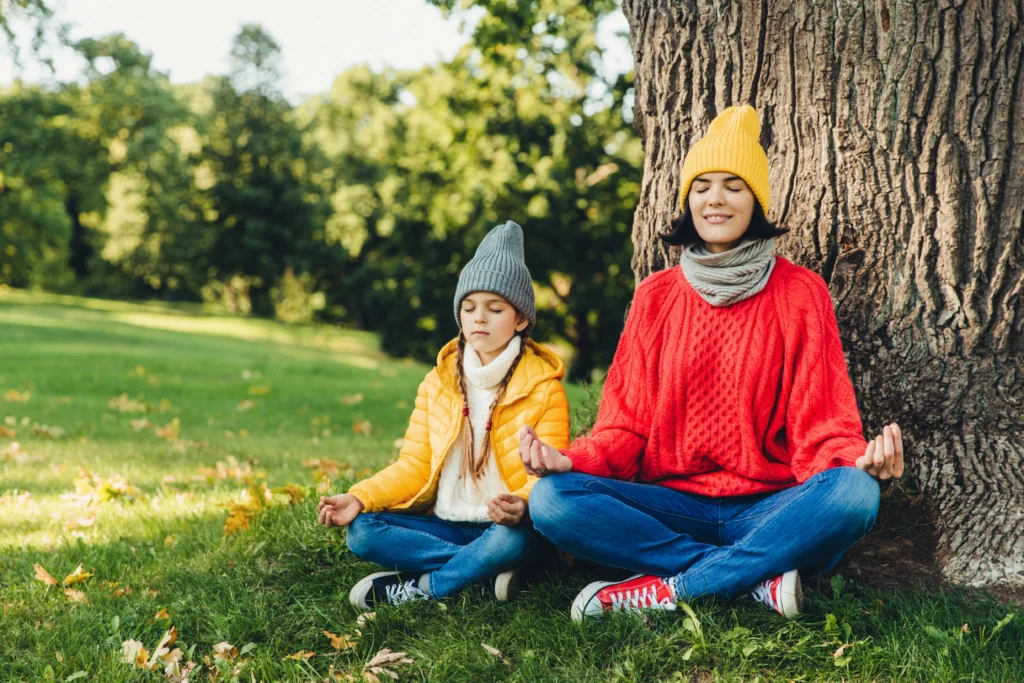
Introduction The present-day parenting of the modern world may be overwhelming, especially in the course of meeting the daily chores, emotional control, and meeting the needs of a child. Peaceful parenting does not mean finding some quick fixes to our issues- it is a journey of building a mental existence in our minds and in our families. Mindfulness as the conscious parent learns is the secret of responding and not reacting to difficult times and creating a place of safety, empathy and respect. Being a well-established child development professional who provides my services to families in the USA, I would support the benefits of mindful parenting as life-changing. As a part of this blog, I will discuss how the secret to harmonious relationships, healthy children, and family harmony is mindfulness. 1. Mindful Parenting Enhances Emotional Regulation Kids Need One of the most noticeable consequences of mindfulness is that it may help control the emotions of a person, not only in the parents but in children as well. Self-reflection and sleep are ways of daily life that can allow parents to address stressful toddler behavior in a non-stressed fashion. Children grow well in harmonious families where giant emotions are handled with patience, insight and instruction. Mindfulness also increases the ability of a parent to implement positive techniques of punishing toddlers- creating pleasant boundaries that instruct, rather than reprimand. Such thoughtful approaches yield sense of security, and confidence over time and this allows children to be emotionally street smart throughout their lives. 2. Family Meetings and Active Listening Parenting Promote Connection Mindfulness of parenting will start by being a full presence- listener; listening and affirming the voice of every group member. The connection of this nature is offered due to frequent family meetings. These meetings facilitate the free dialogue of emotions, difficulties and rules even on an informal level. Parenting at home through active listening enables parents to exhibit empathy and respect, a factor that reduces conflict and leads to increased trust. Listening actively assists the children to share and strengthen self-esteem and instills discipline as a team effort rather than a contention. 3. Holistic Child Development Is Fueled by Mindfulness Whole child development and mindfulness are similar. Peaceful parenting is not merely a behavior, as it builds all of the child developmental facets, such as emotional, cognitive, social, and moral. Parents should choose toddler activities that facilitate mindful engagement (outdoor play, meditation, or storytelling) to help children develop curiosity and compassion. Besides, parents can apply mindfulness to strengthen conscious co-parenting, increasing awareness of partnership, communication, and shared goals for the family’s well-being. It is a unified practice, which keeps the stress level under control, since there is harmony in life above individual interaction. Conclusion: Unlock Peaceful Parenting Through Mindfulness Mindfulness is not an objective but a habit that you practice on a daily basis and this transforms the parental experience. The awakening of awareness and emotional control and bonding will allow the parents the keys of peaceful parenting to every member of the family. One of the ways to start practicing these conscious steps is to research my expert resources, consultations, and courses aimed at helping every modern family on its mindful path. Don’t forget to follow me on Instagram, and YouTube. for motivation and practical parenting tips. Hack: Have a conscious morning every morning- inhale two times and make a purpose- take about a calm, interrelating day. You can find our recent news and updates in the latest press releases. My project, Vedangi Brahmbhatt, helps modern families discover peace through mindfulness. Explore my courses, books, and personalized service to your mindful parenting process visit vedangibrahmbhatt.com.
Understanding Triggers And Why It’s Such An Important Part Of Parenting
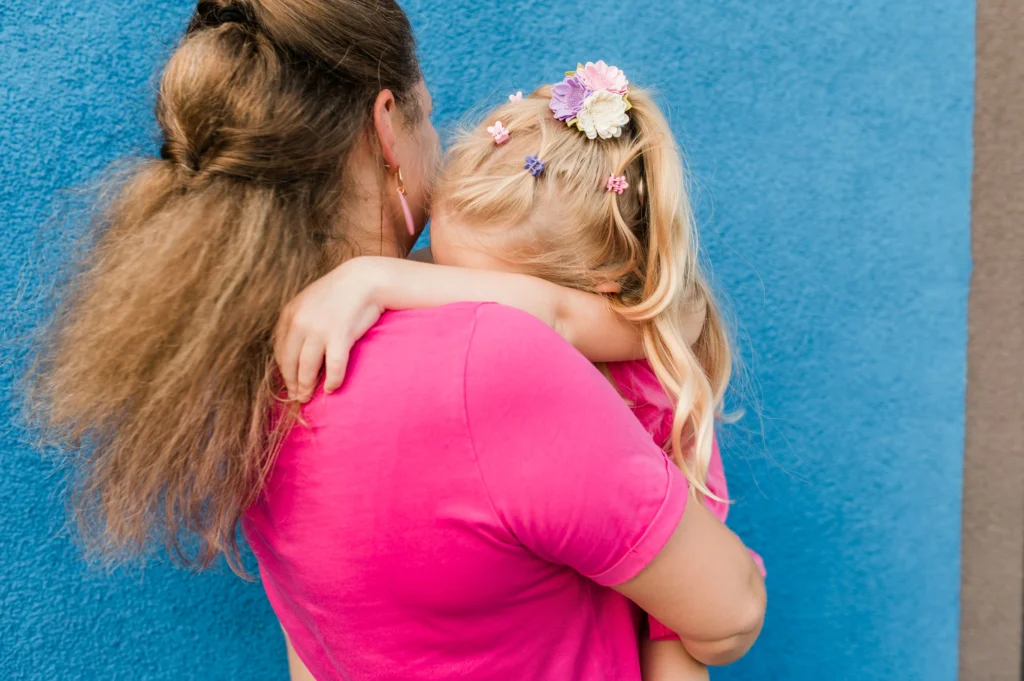
Triggers are emotional responses due to unresolved past woundedness or stresses (often resulting in exaggerated responses to basic parenting issues). For instance, a tantrum by a toddler may elicit out-of-proportion frustration that harkens back to your childhood. By developing self-awareness through practices like mindful parenting and Active Listening Parenting, you can identify these triggers before they escalate. This insight aids in changing responses to thoughtful reactions, setting a calmer tone and modelling Emotional Regulation Kids for your child. Using Nonviolent Communication to Respond, Not React When triggered, parents can unintentionally speak in ways that escalate conflicts, rather than resolving them. Employing Nonviolent Communication helps to express feelings and needs without blame or judgment. For instance, instead of reacting with anger to a toddler’s misbehaviour, calmly stating your concern and setting clear boundaries aligned with Positive discipline strategies for toddlers encourages cooperation and respect. Creating Supportive Family Structures with Family Meeting and conscious co-parenting Parental triggers may be reduced by developing strong family systems. Holding regular Family Meeting enables everyone, including children, to share their feelings, voice concerns, and devise solutions together. Additionally, practising conscious co-parenting helps to ensure consistent support and communication between caregivers, reducing stress triggers and reinforcing stable environments for kids’ Holistic Child Development. Conclusion: Master your Triggers to Embrace Empowered Parenting Awareness and management of your triggers are transformative for peaceful parenting and nurturing Emotional Regulation Kids need. For personalized strategies, connect with Vedangi Brahmbhatt’s expert consultations designed to help families thrive through conscious co-parenting and mindful parenting techniques, including How to implement conscious parenting techniques at home. Don’t forget to follow us on Instagram, and YouTube for regular insights and tips on Toddler Activities. Vedangi Brahmbhatt brings deep knowledge and heartfelt direction to empower parents on their journey. Visit vedangibrahmbhatt.com to browse courses, Best Parenting Books, and consultations designed to help families maintain healthy growth, while embracing the Benefits of mindful parenting for child development.
Why Parenting Is About You, Not Just Your Child: A Conscious Parenting Perspective
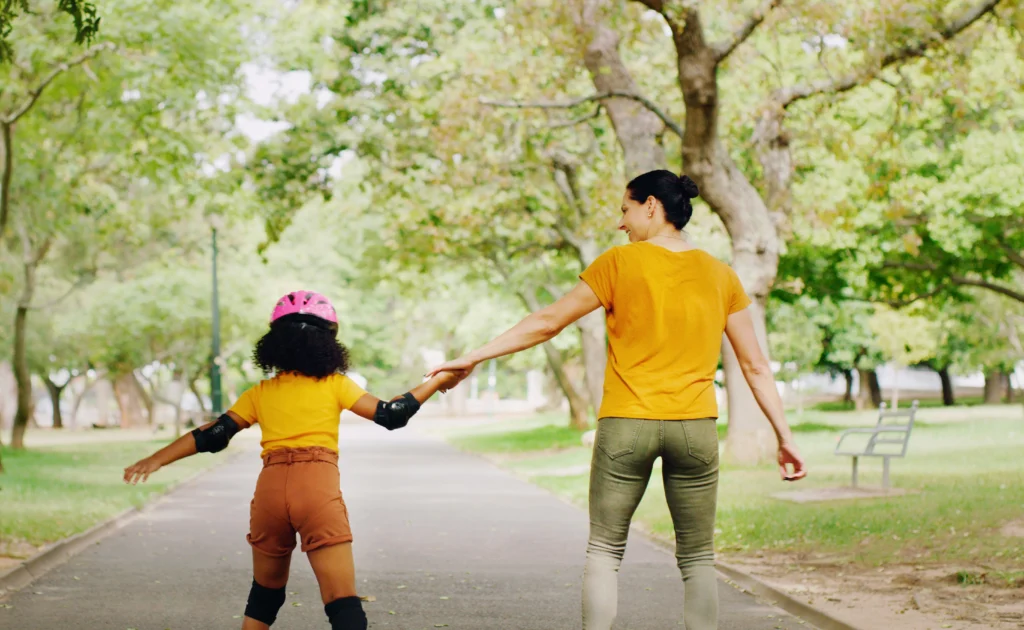
Setting boundaries is an important part of having a healthy relationship and healthy family dynamics, but for many parents this comes with a large amount of shame or guilt when setting and enforcing limits. In a world filled with advice and social pressure on raising a child, it’s easy to think that if you are setting rules or saying “no,” you are being a harsh or unloving parent. However, the conscious parent knows that clear, compassionate boundaries contribute to security, respect, and trust in children, and help children to develop resilience and Emotional Regulation Kids need. Vedangi Brahmbhatt is an experienced Child Development Specialist helping to teach families across the USA how to embrace boundaries without fear or guilt by using mindful parenting strategies. In this blog, learn How to implement conscious parenting techniques at home assertively while being loving and establishing the basis for healthy growth and connection. Recognise Boundaries as Acts of Loving and Caring Setting limits easily lends itself to being viewed as punishment or rejection, when in fact it’s a critical form of nurturing. Boundaries communicate safety and predictability, helping children feel secure. When parents frame limits as acts of protection and love, the guilt that comes with saying “no” lessens. Integrating boundaries into Positive discipline strategies for toddlers helps children understand the “why” behind rules. This approach promotes cooperation over rebellion and supports Holistic Child Development. Practise Nonviolent Communication to Express Boundaries Clearly Clear, empathetic communication is key to setting boundaries without shame. Using Nonviolent Communication techniques, parents can express needs while validating their children’s feelings. This includes calmly stating limits, giving reasons briefly, and offering alternatives. For example, saying, “I want you to be safe, so you need to be in the backyard. Let’s choose some fun toys to play with here,” models respect and offers choice within limits. This helps kids feel heard and reduces power struggles – a true Benefit of mindful parenting for child development. Use Family Meetings and Active Listening Parenting to Build Consensus Including children in discussions of limits through regular Family Meetings promotes ownership and understanding. When kids help set household rules, they’re more likely to respect them. Practising Active Listening Parenting during these discussions enables parents to fully hear children’s perspectives and co-create boundaries aligned with family values. This collaborative process strengthens bonds and minimises guilt parents may feel when imposing limits alone. Conclusion: Boost Your Parenting Power with Compassionate Boundaries Setting boundaries without shame or guilt transforms parenting into a journey of empowerment and love. Clear limits teach safety, responsibility, and Emotional Regulation Kids need for lifelong success. For personalised guidance, consider a consultation with Vedangi Brahmbhatt – an expert in conscious co-parenting and mindful parenting. Her consultations, resources, and even recommendations for the Best Parenting Books offer tools to help families thrive. Don’t forget to follow us on Instagram, and YouTube for ongoing advice and inspiration on Toddler Activities, mindful parenting, and child development. At Vedangi Brahmbhatt, we believe conscious parenting is about boundaries paired with empathy, helping families grow stronger together.
Screen Time + Kids: Conscious Usage of Technology
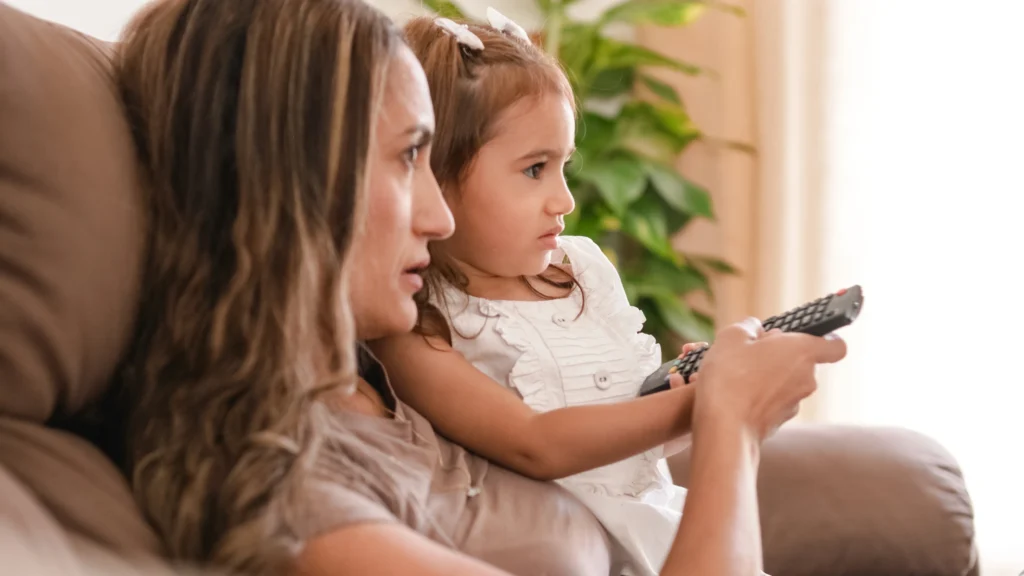
In an electronic age, control of screen time in children is one of the most significant issues amongst parents in the USA. Screen technology has seeped into our lives (through tablets, smartphones, televisions, computers) and it can feel like wading through the sea of their impact on child development. Instead of viewing screens through a lens of limitation and control, the conscious parent embraces a mindful parenting approach to technology that prioritises balance, connection, and thoughtful use. The authoritative Child Development Specialist, and mindful parenting proponent Vedangi Brahmbhatt, advocates healthy screen time as one of the desired results of Holistic Child Development and healthy parent-child bonds. This blog addresses ways in which parents can practically confront screen time in ways that support emotional regulation and good behaviour in children. Prioritise Quality Over Quantity in Toddler Activities and Screen Exposure American Academy of Paediatrics recommends that toddlers have less screen time, but they need to be involved in developmentally appropriate activities. So it’s important that we deliberately reach for high-quality educational and interactive material instead of focusing only on reducing hours. The combination of Toddler Activities that include movement, creativity, and practicality will decrease passive time at the screen and increase active time. Parents are able to create experiences on the screen that are supplemental but not alternatives to physical play and social interaction. Promote Open Conversation with Family Meetings and Active Listening Parenting The use of technology impacts the entire family structure, so dialogue needs to be open. Family meetings organised around technology regulations make them respectful of each other and accountable to each other. At these meetings, parents and children can talk about expectations, benefits, and concerns around screen use. Using Active Listening Parenting methods during these conversations helps parents respond mindfully to children’s experiences with media. This provides a sense of independence for kids, helps build trust, and reduces conflicts around screen time a cornerstone of mindful parenting. Support Emotional Regulation Kids and Holistic Development Around Screen Use Excessive or unregulated screen time may contribute to difficulties in Emotional Regulation Kids often exhibit, such as irritability or distraction. As parents, being good role models of wise technology use, while maintaining consistent structures and limits, provides children with opportunities to practise self-control. The integration of screens into a unified system of Holistic Child Development means balancing digital communication with social skills, creativity, and empathy. The conscious parent also knows when to take breaks from screens to prioritise bonding, play, and family connections in the real world. Conclusion: Being Mindful of Technology to Flourish Families Finding the right balance between screens and children’s well-being requires purpose and empathy. Parents can prepare their toddlers for success in the digital era through prioritisation of quality content, enrichment of Toddler Activities, open Family meetings, Active Listening Parenting, and consistent emotional regulation practices. For personalised guidance, you can reach out to Vedangi Brahmbhatt a Child Development Specialist and expert in conscious co-parenting and mindful parenting. She provides tools and resources that enable you to become the conscious parent your family needs. And remember to subscribe to us on Instagram, and YouTube for more insights into mindful parenting and Holistic Child Development.
Deal with Tantrums in a Mindful Way
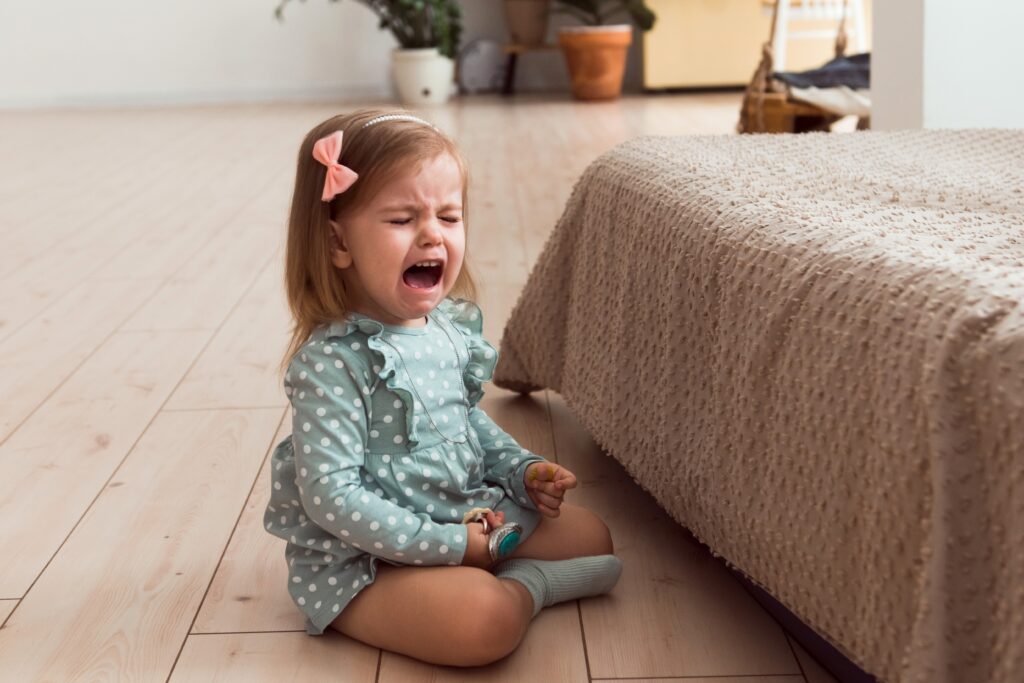
Kids have tantrums; it’s a normal part of growing up. But it can feel overwhelming for both them and you. As a Child Development Specialist, I have met many moms and dads. They ask, “What do I do when my child yells and kicks and cries? “And when it feels like nothing is helping?”.Punishment isn’t the path to helping them grow. It is mindful parenting. This is when you keep your composure and stay connected with your child.You want to understand why they’re so upset. When we pause to see the reason, rather than reacting quickly, we can feel more connected. This can help them feel better. Let’s look at three key steps to help with tantrums. 1. Understand the ‘Why’ Behind the Tantrum Tantrums can be caused for various reasons. A child might be tired or hungry. There may be too much going on. Or they might have complex feelings that they cannot express in words. Instead of calling them “wrong,” try to understand them and make a meaningful decision regarding the situation. A family meeting is a good time to have a conversation with your child. Do it when you are both relaxed. You can say, “Do you know when you were sad today?” Let’s talk about what it was. “We can find a new way to act next time.” This small act is a big help. It teaches emotional regulation. It is a good start to holistic child development. 2. Respond, Don’t React It should be considered wrong to rule out our actions when a child is angry. When your child yells, it’s natural to feel like yelling back, but that makes it worse. So take a few deep breaths. Use active listening parenting. Lower yourself to their level and look into their eyes if they’re open to it. Say something like: “I see you are sad.” I am here for you. Let’s take a breath.” This is a form of nonviolent communication. It helps your child feel seen, safe, and soothed. It shows them how to face complex feelings with no shame or fear. This is a skill for life. If your child is too upset to talk, just be there for them. Let the intense emotions settle. Being calm shows more than words ever could. 3. Prevent Future Tantrums with Connection & Routine Mindful parenting is not only about what you do during a tantrum. It is also for the before and after. Make a strong bond with your child. Have one-on-one time, set some guidelines to perform activities, and do toddler activities. It reassures your child in moments of anger and during times of change. The way you can guide your child is not through punishment. They are through mindful teaching. Some positive discipline strategies for toddlers are: These tools and conscious co-parenting help you to work with your child, not just tell them what to do. If you are together or not, try to talk all the time. Share what you care about. Respect your child’s feelings. These are key parts of the conscious parent’s way of life. Conclusion: Tantrums Are Opportunities for Growth Tantrums can be difficult. They’re not just negative; they can be moments for growth. They are a time to get closer to your child. With mindfulness parenting, we can turn tantrums into times of trust. They can help kids get stronger and help them understand their feelings. Tip: Make a “Calm Corner” in your home. It can be a soft space with pillows, toys, or books from the Best Parenting Books. These things help kids calm down. Show them that this is a space for comfort, not for fear. Don’t forget to see us on Instagram, and YouTube for more good ideas. For any new info, click here to see our recent press releases.Want to know more about how to implement conscious parenting techniques at home? Go to Vedangi Brahmbhatt’s website. You can explore ways to get help, join a class, or see what resources we recommend.
Parenting Without Yelling: Ways That Work
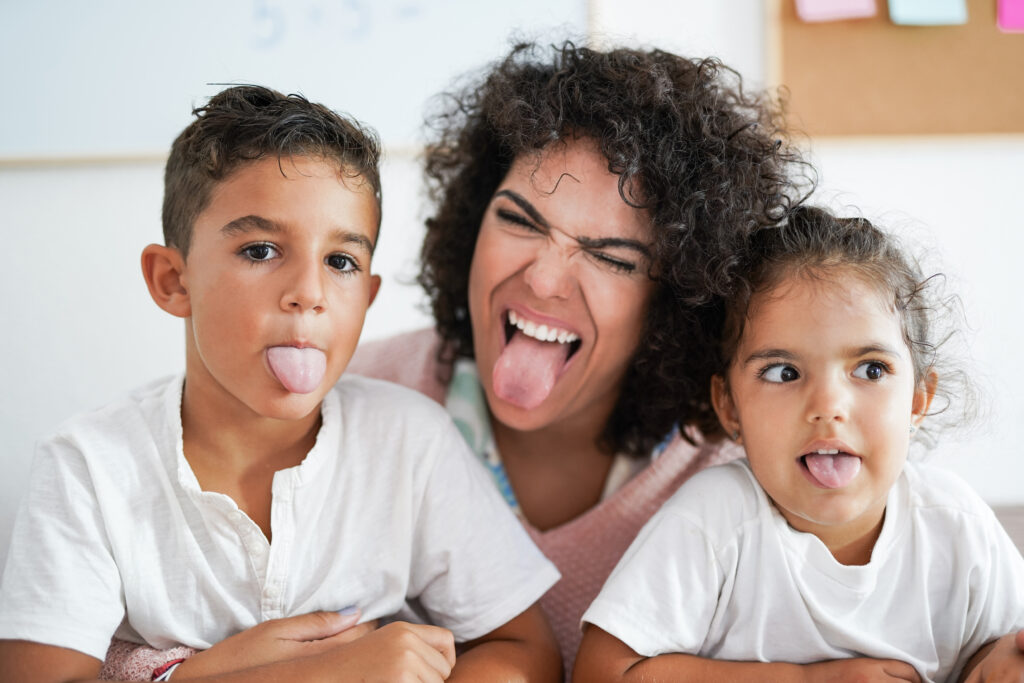
Let’s be real. Parenting isn’t easy, but it can also feel overwhelming. Your child may throw food. They may cry a lot at bedtime. You’re exhausted. They’re exhausted. Sometimes it seems like raising your voice is the only option, but it rarely helps children learn or grow. It just makes things worse. You know there is a better way. As a Child Development Specialist, I work with families who want to nurture confident, emotionally healthy, and happy children. They do not want to yell at or punish you. The good news is that you can nurture your child with compassion while keeping fair rules. It starts with you, a plan, and a few practical approaches that work every day. 1. Pause, breathe, then respond It’s not about never feeling angry, it’s about guiding it into constructive action. A great tool in mindful parenting is to wait before you act. This short time lets you calm down. It stops you from just yelling out. Try this: When you feel the urge to yell, place your hand on your heart and take three deep breaths. You’re not ignoring the problem—you’re simply calming yourself before responding. This shows your child’s emotional regulation. When you do this a lot, your child learns it too. This is a big part of holistic child development. 2. Replace yelling with nonviolent communication. When a child acts out, it is often a cry for help. They may not have the words to say what they need. Act with intention, not with anger. Use Nonviolent Communication to see what they need and show that you understand. Example: Instead of yelling, “Why are you so messy all the time?” Try: “I feel sad when I see toys all over.” I like a clean room. Can we clean up as a team after this game?” This also helps with Active Listening Parenting. Your child will feel truly seen and heard, not judged or embarrassed. 3. Create rituals that reinforce connection and boundaries Ways of stopping problems are as important as ways to fix them. One easy but strong tool is a family meeting. This is a check-in each week. Everyone in the home can share their feelings, express their worries, and talk about the positives. This helps with conscious co-parenting. It shows kids how to work as a team to fix problems. Make routines fun by including simple, enjoyable activity sets for your toddler. This gives your child a plan and a feeling that they are part of the family. A child who feels close to you is less likely to “act out.” A study shows that when you are in tune with a young child’s feelings, they grow up with better self-control. These are the outcomes we hope to see from positive discipline strategies for toddlers. Conclusion: Yelling Isn’t the Only Option Yelling doesn’t make you a bad parent, it means you’re human. But if you’re reading this, you’re already taking the first step toward change. You can be the conscious parent your child needs. Tip: Develop a ‘calm plan’ together, so when emotions are out of control, you both know it’s time to pause. Only after you’re both calm, you can talk things through. This plan gives you both a tool to use when feelings seem uncontrollable. Remember this: you are not on your own. We can help you. Our conversations are guided by the ideas of Conscious Co-Parenting NJ. We also draw on proven strategies from some of the best parenting books available. Don’t forget to follow us on Instagram, and YouTube for more good ideas. For new news, click here to see our most recent press releases.
How to Build a Strong Emotional Bond With Your Child

A child feels safe when there is a link to you. As a child development specialist, I know this to be true: strong bond are built in the small, everyday moments—not just the big ones. The bedtime talk. It’s in the moments when we stop and truly listen to them. The small things we do time and time again that say, “I see you.” I LOVE YOU.” Parenting can be really difficult at times. In the first years filled with all sorts of toddler activities, spilled food, and big feelings, this might feel like a lot. But a good link does not ask you to be perfect. It asks you to be present. Here is how you can start growing a strong bond with your child today. 1. Make Time to Be Close Every Day In our fast-paced world, it is really difficult to slow down. But a bond grows through planned, repeated times of being close. I call them “feeling check-ins.” These can be simple things like: These moments create a sense of safe, steady love and build trust over time. They can also help with holistic child development, where a child’s heart, mind, and way of communicating with others all grow at the same time. When life feels overwhelming, start with one daily habit that matters most. It could be a song you sing in the shower or “finish your child’s day on a note of gratitude. At bedtime, gently invite them to share something they’re glad about. It could be a small win. 2. Here to Know, Not to Fix Children don’t always need us to fix their problems — sometimes, they just need to feel truly seen, heard, and understood. Instead of: “You’re fine, it’s not a big deal,” Try: “That made you feel very sad, didn’t it? I’m here for you.” This approach, inspired by nonviolent communication, is a beautiful way to strengthen your bond with your child. It’s about letting them know their feelings are welcome And so? Kids feel safe in their feelings. They are more ready to open up. This is one of the key benefits of mindful parenting for child development—kids learn to understand their feelings and get to know themself when you are there for them. 3. Guide with Care, not Fear To guide is often not seen with the right perspective. It means “to teach,” not “to punish.” Using positive discipline strategies for toddlers means you set clear rules with warmth and care. For example, “It’s okay to be mad, but it’s not okay to hit.” Let’s take deep breaths as one.” This way it fits with the idea of conscious parenting—“A mindful parent is someone who notices what’s driving their reactions, takes a pause before responding, and chooses to lead through their own example. This is especially important when parents live in two different homes. When you deal with intense emotions or fights, leading with a kind heart builds credibility. That is where the strongest bonds reside. Real-time insight A 2024 U.S. study found that children who felt emotionally close to at least one parent were 42% more likely to excel in school and 52% more likely to resolve conflicts with friends without harm That is the true power of a close bond. It sets your child up for a life by filling their hearts with strength and resilience. Conclusion: The Strong Bond Starts with You It’s not about doing everything perfectly; it’s about being there, time after time. Tip: Make a “bonding jar.” Put small pieces of paper in it through small, everyday actions that build closeness. Like reading a book, looking at the stars, or performing a toddler activity like sorting things by color. Let your child pick one each day. It is fun and a valuable lesson. The path of mindful parenting continues. Together, keep learning, bonding, and growing. Don’t forget to follow us on Instagram, and YouTube for more ideas. For the latest news, click here to view our recent press releases.

